Both Chosun Ilbo and Ohmynews have had something on marketplaces. The Korean term is usually "traditional market" (chaerae sijang), but there isn't actually any concept of "modern" marketplace. (Now that I think, this is the only context I ever see the word chaerae (在來). And also, checking the dictionary, the word also has the meaning of "ordinary, common".)
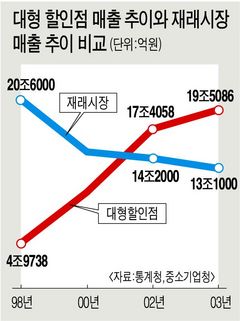 Chosun, with a headline "Marketplaces, on the verge of death" has also some numbers to back up the message: the registered number of marketplaces in early 90s was 3500, but at the moment 1608. Combined sales in 1998 were 20 trillion won [20조, 13 billion €, right?], but in 2003 only 13 trillion [8.6 billion €]. The main reason for the downfall is mainly in the change of distribution structure; the large discount stores (how are they defined) are gaining ground continuously. "Old and unsanitary buildings, cramped and inconvenient spaces with lacking parking space, aged shopkeepers who lack energy to accommodate" are the reasons one quoted consultant gives. Chosun, with a headline "Marketplaces, on the verge of death" has also some numbers to back up the message: the registered number of marketplaces in early 90s was 3500, but at the moment 1608. Combined sales in 1998 were 20 trillion won [20조, 13 billion €, right?], but in 2003 only 13 trillion [8.6 billion €]. The main reason for the downfall is mainly in the change of distribution structure; the large discount stores (how are they defined) are gaining ground continuously. "Old and unsanitary buildings, cramped and inconvenient spaces with lacking parking space, aged shopkeepers who lack energy to accommodate" are the reasons one quoted consultant gives.
This time it's not about bad economy - or bad economic policy...
Ohmynews has an ongoing series of reports, "Going to Seoul marketplaces" by Yi Sûng-ch'ôl (Lee Seung-chul?). They are classified under "Stories of Life", not under "Economy".
• First one is about Yongdap market in Seongdong-gu; some general characteristics of the place, descriptions of people the reporter met there, and a note that these markets are losing their competitiveness to big discount markets. A granny who sells beans and leak from a mat on the market street, making 5000-10000 won a day.요지마다 들어서는 백화점과 대형 할인점 틈바구니에서 경쟁력을 잃고 점점 퇴조해 가는 재래시장, 그러나 그 재래시장에는 따뜻하고 정다운 우리의 이웃들이 삶은 힘겹지만 풋풋한 정을 나누며 오순도순 정답게 살아가고 있었다. 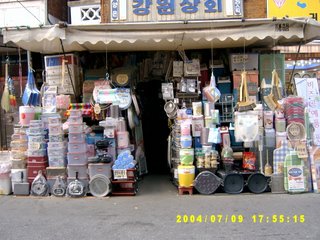
Kangwôn Sanghoe in Yongdap Market; sanghoe (商會) in the shop name is a sure bet to give an old-fashioned appearance. ⓒ2004 이승철, from Ohmynews |
Interesting that the writer uses the word sosimin (小市民) in the title: 소시민의 삶이 살아 숨쉬는 '재래시장'; that term means actually "petit bourgeois", coined most likely in Japan to correspond to the Western term. One doesn't hear that very often in Korea, where in common speech the closest concept is usally sômin (seomin); in scholarship they often just use the term as such, 쁘띠 부르조아. In other articles, the marketplace people and the writer use the comfortable sômin.
• Sungin market in Gangbuk-gu; this is a place which is holding its ground despite of bad economy.자신도 60대 초반이라는 그 택시기사는 입이 열리자마자 독설을 뱉어내기 시작했다. 서울시의 교통체계 개편 이후 길은 더 막히고 엉망이라며 시장과 서울시를 성토하더니, 급기야 정부와 대통령으로 이어진 불평은 육두문자까지 섞어가며 침을 튀기는 것이었다.
"우리 같은 서민들이야, 민주화니 정치니 별 것 아닙니다. 그저 배부르고 등 따뜻하면 되는 것 아닙니까. 그런데 이게 뭡니까" 그의 결론이었다.
말을 마치고 일어서는 그에게, 흥분 가라앉히고 운전 조심하라고 말했다. 그가 사라지자 주인이 비로소 말문을 열었다.
사람들이 저래서야 되겠느냐는 것이다. 그래도 이렇게 마음놓고 정부나 대통령을 비판할 수 있는 것도 다 민주화된 덕택이며, 정부나 대통령이 하는 일이 어디 한두 번 가볍게 생각하고 시행하겠느냐는 것이다.
내가 조금 불편하다고, 또는 아무리 국가나 공익에 좋은 정책이라도 내가 조금 손해를 볼 것 같으면 저렇게 욕하고 비판하는 것은 옳지 않다는 것이었다. 그리고 어디 국가 원수를 함부로 욕하고 저래서야 나라꼴이 되겠느냐는 것이다. 아무리 보거나 듣지 않는다고 해도 대통령에게는 국민으로서 거기에 합당한 예우를 해야 할 것 아니냐는 것이다.
두 사람이 같은 육십대지만 생각하고 행동하는 것은 너무나 다르다. 주인 영감의 말을 들으며 이 땅의 착하고 순박한 서민정서의 전형을 보는 듯하여 마음이 알싸하게 저려온다. (Emphasis AL)
• Moraenae market in Seodaemun-gu; "vanishing affectionate sight" or something like that, 사라져버린 정(情)겨운 풍경. Once again, the use of chông (jeong 情) in characterizing less modern forms of economic activity, or characteristics of society perceived as less modern in general.국밥을 주문하고 자리에 앉으며 "점심시간이 지나서 그런지 손님이 없다"고 말하자, "점심시간이 지나서이기도 하지만 손님은 저녁시간에 많다"고 한다.
장사가 어떠냐고 물으니 괜찮단다. 요즘 듣기 어려운 반가운 소리여서 이렇게 손님이 없는데 장사가 잘되느냐고 다시 물으니 이렇게 손님이 없다가도 갑자기 손님들이 몰려들면 앉을 자리가 없을 정도라는 것이었다.
그럼 작년이나 재작년에 비하여 매출이 얼마나 늘었느냐고 묻자, 그렇게는 비교를 할 수 없다는 것이었다. 본래 그릇가게를 했었는데 장사가 너무 안 되어 금년 2월에 음식점으로 업종 변경을 하였고, 그때부터 장사가 제법 쏠쏠하다는 것이었다. 재빠른 변신으로 성공을 거두고 있는 것이리라. The writer asks if there are any farmers coming to sell their produce directly to the market, but he is told there are hardly any. He is disappointed not to find warm-hearted (hunhunhan insim) peasants selling their fresh vegetables, but then there is one 86-year old granny selling leeks she had grown herself.어느 좌판 아주머니는 “우리같이 가난하고 힘없는 사람들을 위하는 사람이라고 대통령을 뽑아줬는데, 요즘 돈 많은 사람들은 돈은 외국에 나가 쓰고, 외국으로 돈 빼돌리고 국내에서는 돈을 쓰지 않으니 경기가 풀리지 않아, 서민들은 살아가기가 너무 팍팍하다”고 말했다. 그 아주머니의 푸념하던 목소리가 귓가에 맴돌고 있었다.
• Newest story is about Weolgok Market in Seongbuk-gu, or what used to be a market, as the lot is going to be redeveloped into a 15-story business and apartment building. (These are called chusang pokhap buildings.) At the moment there are just some street stall keepers at the construction site wall.빼꼼하게 열린 공사장 쪽문을 발견하고 간신히 안으로 들어서니 널찍한 공터가 펼쳐져 있다. 전에 있던 시장터다. 상인들과 손님들이 뒤엉켜 활기차고 떠들썩하던 자리를 중복을 하루 앞둔 뜨거운 햇볕이 완전히 점령한 채, 메말라 가는 인심처럼 바짝 말리고 있었다.
영세상인들의 진한 삶과 애환이 배어 있는 곳, 부근의 가난한 서민들과 상인들이 어울려 가슴 뭉클한 이야기꽃을 피우다가 떠난 자리다. (Emphasis AL)
Categories at del.icio.us/hunjang: marketplaces ∙ businesskeepers ∙ modernization ∙ housing |
 Last week I had an online chat with Todd Thacker of Ohmynews, the result of which can be seen at the English-language site of Ohmy. The problem is that the Ohmynews site hasn't opened from here since yesterday, so I haven't seen the piece myself, but I suppose it's nothing for which I'd need to go hiding.
Last week I had an online chat with Todd Thacker of Ohmynews, the result of which can be seen at the English-language site of Ohmy. The problem is that the Ohmynews site hasn't opened from here since yesterday, so I haven't seen the piece myself, but I suppose it's nothing for which I'd need to go hiding.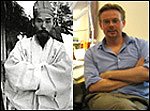 No, that picture wasn't used, but there was another drink and snack pic from a situation which was quite typical. There are instances when certain degree of participant intoxication is necessary, but these are no company (hoesa) men; their own business goes bust if they don't get up early next morning, so they are usually quite modest with soju.
No, that picture wasn't used, but there was another drink and snack pic from a situation which was quite typical. There are instances when certain degree of participant intoxication is necessary, but these are no company (hoesa) men; their own business goes bust if they don't get up early next morning, so they are usually quite modest with soju.

 Miri "Sonyk-Rok" Park from United States
Miri "Sonyk-Rok" Park from United States 
 Disappointing that the movie Little Monk, which is the latest of my this far not so many movie translations will be broadcast at 14.55 o'clock, in the afternoon when hardly anyone will be watching. When a film is decent, the translator develops a kind of affection for the film and hopes that as many as possible could see it; at least in my case as the translation assignments are so few, it's usually just not another work. (Well, Kim Ki-duk's Bird Cage Inn (파란 대문) was a translation assignment to which I couldn't develop affection [chông 情]. And it was not because of his view of Korean society but his view of women.)
Disappointing that the movie Little Monk, which is the latest of my this far not so many movie translations will be broadcast at 14.55 o'clock, in the afternoon when hardly anyone will be watching. When a film is decent, the translator develops a kind of affection for the film and hopes that as many as possible could see it; at least in my case as the translation assignments are so few, it's usually just not another work. (Well, Kim Ki-duk's Bird Cage Inn (파란 대문) was a translation assignment to which I couldn't develop affection [chông 情]. And it was not because of his view of Korean society but his view of women.) On the right is a screen capture of the subtitling program with the finished translation and the timecodes. The text is from the scene in the still picture above, when the young monk is once again asking for money from the temple master for a circumcision.
On the right is a screen capture of the subtitling program with the finished translation and the timecodes. The text is from the scene in the still picture above, when the young monk is once again asking for money from the temple master for a circumcision.  How moving to receive an actual hand-written letter!
How moving to receive an actual hand-written letter!
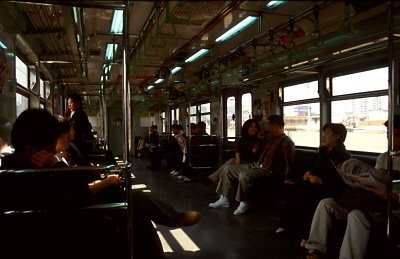

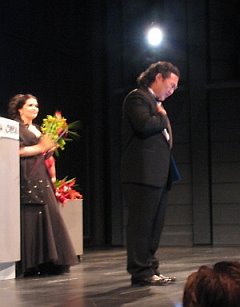

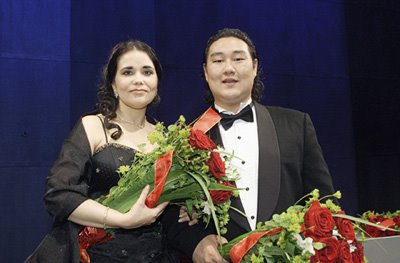
 Earlier I posted a
Earlier I posted a  People who want to make the Democratic Labor Party more oriented towards social democracy have organized themselves into a kind of an association (
People who want to make the Democratic Labor Party more oriented towards social democracy have organized themselves into a kind of an association ( 핀란드 서부사람들도 유머감각이 생각보다 좋은지, 아니면 진짜로 반동세력들의 고향을 지나갔는지 모르겠습니다. 이번 주말에 핀란드 남서부에서 짧은 휴가여행을 갔었을 때 옆에 있는 지명(地名) 표시를 봤습니다. 위에 있는 땅이름은 물론 우리나라 옛 수도인 뚜르꾸인데, 아래에 있는 것은 반동(反動), 즉 진보를 반대하는 뜻입니다. 1970년대에 많이 들을 수 있었다는 말인데, 요새 젊은 애들이 무슨 뜻인지 알고 있을란가 모르겠습니다.
핀란드 서부사람들도 유머감각이 생각보다 좋은지, 아니면 진짜로 반동세력들의 고향을 지나갔는지 모르겠습니다. 이번 주말에 핀란드 남서부에서 짧은 휴가여행을 갔었을 때 옆에 있는 지명(地名) 표시를 봤습니다. 위에 있는 땅이름은 물론 우리나라 옛 수도인 뚜르꾸인데, 아래에 있는 것은 반동(反動), 즉 진보를 반대하는 뜻입니다. 1970년대에 많이 들을 수 있었다는 말인데, 요새 젊은 애들이 무슨 뜻인지 알고 있을란가 모르겠습니다.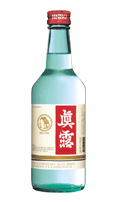
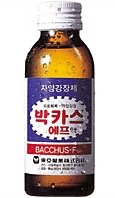
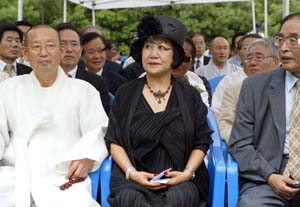 I have seen news of Koreans who have managed to have their photo taken with for example president Clinton and then used that to cheat money out of people, but a Japanese woman claiming she's a granddaughter of the Meiji Emperor and taking part in a public event in the Republic of Korea is a bit unexpectable. (Hankyoreh,
I have seen news of Koreans who have managed to have their photo taken with for example president Clinton and then used that to cheat money out of people, but a Japanese woman claiming she's a granddaughter of the Meiji Emperor and taking part in a public event in the Republic of Korea is a bit unexpectable. (Hankyoreh, 

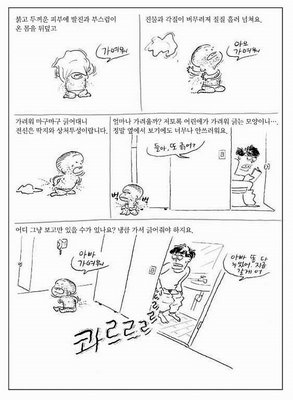
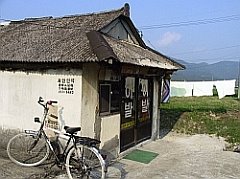
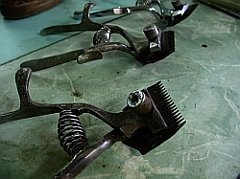
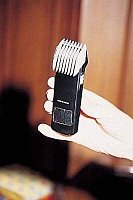 The standard Korean spelling given in the most authoritative (almost wrote authoritarian)
The standard Korean spelling given in the most authoritative (almost wrote authoritarian)  Chosun, with a headline "
Chosun, with a headline "